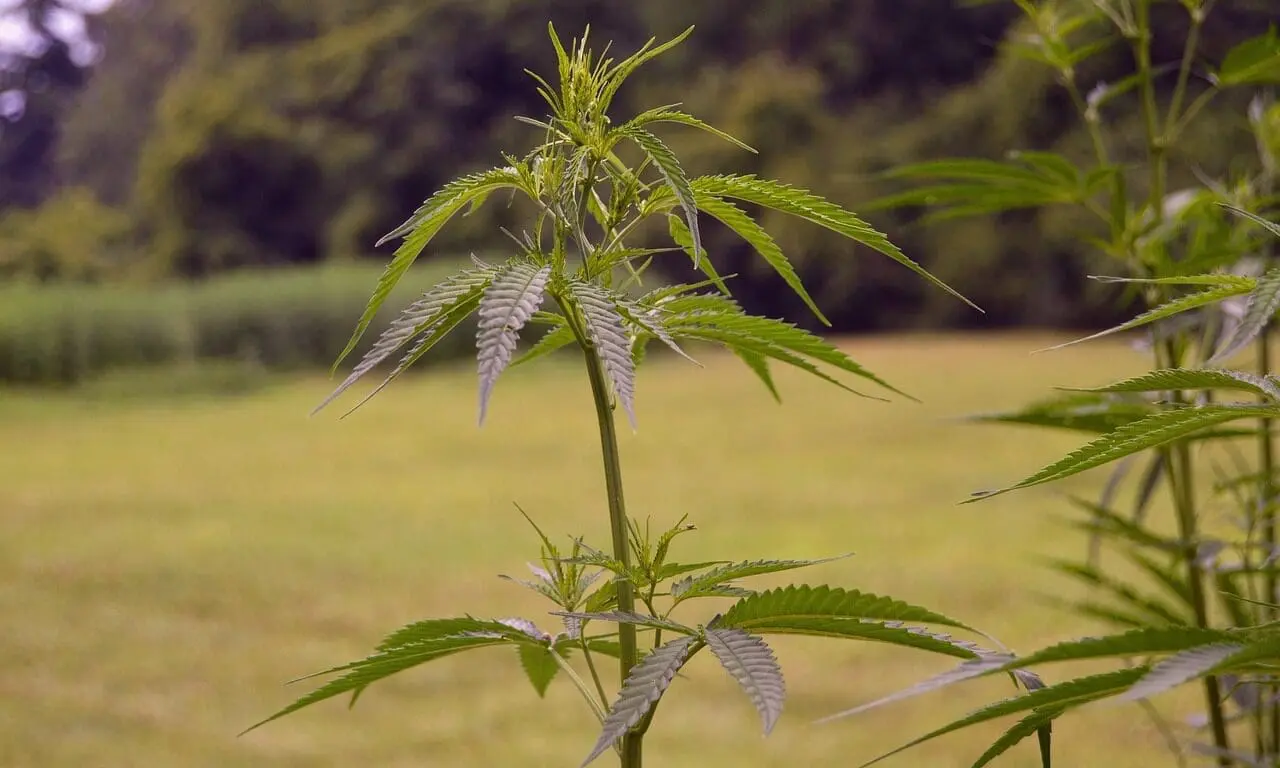Politics
Battle Between Intoxicating Hemp And Marijuana Industries Picks Up In St. Louis

“It reminds me so much of a street drug war…where you got these people over here saying you can’t infringe on my territory.”
By Rebecca Rivas, Missouri Independent
When St. Louis Alderman Shane Cohn filed legislation last year to regulate intoxicating hemp products, he didn’t hear much about it from local residents or leaders of the fast-growing industry.
“I did not get one call, email, etc., when I introduced this last session,” Cohn said, a Democrat who represents a southern portion of St. Louis city. “And then all of a sudden, it’s like everyone is coming out of the woodwork—and I haven’t even requested a hearing on this yet.”
His bill would prohibit hemp-derived THC beverages and edibles from being sold outside of marijuana dispensaries, which would effectively ban them. Intoxicating hemp products, sometimes labeled as “delta-8,” have largely been unregulated in Missouri since 2018, when Congress passed a Farm Bill that legalized hemp.
This year, Cohn gotten calls from “every single media outlet,” he said, along with hemp beverage distributors, hemp edible companies and lobbyists.
His bill comes right on the heels of a heated battle between St. Louis-area state senators this spring over a similar proposal.
Cohn’s bill has the same language as the legislation sponsored by conservative Republican state Sen. Nick Schroer of Defiance this year.
In April, Schroer’s proposal was met by fierce opposition from St. Louis Democratic state senators Karla May, Steve Roberts and Angela Mosley, who led a seven-hour filibuster to kill the bill.
“It reminds me so much of a street drug war,” said May, during a Senate floor debate on April 9, “where you got these people over here saying you can’t infringe on my territory…I don’t think we should be using law to create an unfair business advantage.”
Several Republican state senators backed the filibuster, saying they were also opposed to what they described as a “monopolistic attempt” by the marijuana industry to squash its competition.
Now the fight has been taken to a local stage, where both the St. Louis County Council and St. Louis city’s Board of Aldermen are considering an effective ban as well.
In January, St. Louis County Councilwoman Lisa Clancy proposed a nearly identical bill to Cohn’s and is only one vote away from the bill’s final passage. She said she hasn’t heard from the St. Louis senators who filibustered or industry members.
The bill tasks the county’s health department with enforcement—including seizing and destroying the products. She’s been working with the county health department, she said, to make sure its leaders understand how it will be implemented before taking it to a final vote.
Clancy, Cohn and Schroer all argue that it isn’t an industry war but a “public health crisis.”
The St. Louis city and county legislation differs from Schroer’s because he ended up carving out an exception for low-dose THC beverages that have been sold in Missouri’s bars and liquor stores for seven years. It still required things like high-dose gummies, THCA flower and vapes to only be sold in marijuana dispensaries.
Cohn sees the bill he filed on June 27 as a “placeholder,” he said, and he wants to have a discussion about how to move forward with regulation.
“I’m happy to have the conversations to get to the end result where we’re protecting kids and health and welfare,” he said. “It’s not only the idea that there’s not even an age limit on these things. You don’t know what people are putting in these synthetic products.”
Cohn has strong support from the city’s aldermanic president Megan Green, who co-sponsored the bill.
“The fact that largely untested, unregulated, and untaxed products can be purchased at gas stations by kids is simply not sustainable,” Green told The Independent in an email last week.
Mayor Cara Spencer did not respond to The Independent’s requests for comment regarding the issue.
St. Louis County Executive Sam Page didn’t mention a particular stance in his statement to The Independent, but said, “There needs to be robust discussion on what regulation would look like, and I appreciate Councilwoman Clancy leading these efforts.”
A product ban
Hemp naturally has very little THC, the intoxicating component mostly associated with marijuana. But that potency can be increased with some science.
While marijuana products must be sold in dispensaries and be grown and manufactured in state-regulated facilities, intoxicating hemp products are completely unregulated by any governmental agency.
There’s no state or federal law saying teenagers or children can’t buy them or stores can’t sell them to minors. However, some stores and vendors have taken it upon themselves to impose age restrictions of 21 and up.
If the St. Louis bills pass, all intoxicating hemp products would be put under the state’s definition of marijuana—which would create a ban on available products.
Here’s why: Licensed cannabis dispensaries wouldn’t be able to sell these intoxicating hemp products either because the hemp used to make them has to be grown in Missouri and processed in licensed cultivation and manufacturing facilities—just as marijuana is. Nearly all of these products currently on the market are made from hemp grown in other states.
Marijuana licenses are also limited.
That’s why the state lawmakers who filibustered argued the legislation would cause a “marijuana monopoly.”
Another St. Louis player—Steven Busch, who owns St. Peters-based Krey Distributing—pushed for an alternative licensing structure this year that looks more similar to how alcohol and tobacco retailers are licensed.
He worked with Republican state Rep. Dave Hinman of O’Fallon on a bill to allow beverages, edibles and vapes to continue to be sold outside of dispensaries, but be licensed and regulated under the Division of Alcohol and Tobacco Control.
Hinman’s proposal required age restrictions and clear labeling on all products, as well as testing to be completed by independent labs that have the same accreditation the Missouri Division of Cannabis Regulation requires of licensed marijuana testing labs.
In the end, there were too many differing opinions among hemp industry members to get the bill passed.
A sticking point for Busch was THCA flower, which looks and acts like marijuana buds. He believes it shouldn’t be sold outside of a dispensary, and other hemp advocates ardently disagreed.
Busch said it’s a “slippery slope” for municipalities to pass laws that ban everything in this category.
“I think that some of it can be safe,” Busch said, “but some of it is really taking advantage of the Farm Bill and should be banned.”
Busch agreed with the carve out in Schroer’s bill that capped the amount of THC at five milligrams per can. It excluded drinks made with “synthetic” THC, or THC that has been converted from CBD using a chemical process.
Other advocates said the cap on THC was too low and limiting.
Hinman will be filing another bill next year, he said, incorporating all the conversations he had throughout the past legislative session.
“I don’t think we need to move everything into dispensaries,” he said. “And two, I don’t think it’s a good idea for city-by-city regulation. I believe 100 percent this should be done statewide through the state legislature.”
Missouri cities of Gladstone, Farmington and Chesterfield have already passed municipal ordinances that ban or highly restrict these products.
Intoxicating gummies
Last summer, Total Wine—the country’s largest liquor retailer—set the tone for the alcohol industry when it began carrying hemp-derived THC infused beverages at its seven Missouri stores.
One of its featured products was intoxicating hemp seltzers from St. Louis-based company Mighty Kind.
“It has been amazing for us,” Joshua Grigaitis, owner of Mighty Kind, told The Independent last summer. “When somebody like Total Wine comes on board, it helps the conversation along greatly.”
In some St. Louis bars, his products make up 30 percent to 40 percent of their sales, he said.
Grigaitis and his team have spent the last seven years educating people on how they make their products and why they can buy a THC product outside of a dispensary—because the 2018 Farm Bill legalized hemp.
He welcomes regulation, he said, because it would help the industry grow. But that conversation has stalled out among state lawmakers the last two years.
That’s why—not long after Grigaitis learned about Total Wine last year—former Gov. Mike Parson (R) signed an executive order last August banning intoxicating hemp products and threatening penalties to any establishment with a Missouri liquor license or that sells food products for selling them.
Like the St. Louis bills, he tasked the state health department with enforcement.
Ultimately, Parson’s order was put on hold a month later, after a series of political and legal barriers.
Grigaitis said he can only speak for the hemp beverage industry but there are a number of testing and other compliance requirements that distributors and retailers like Total Wine require in order to “just do business.”
“Everybody has a list of things you have to do to qualify or be compliant,” he said. “So it’s not like this wild west.”
Clancy said she’s “not looking to put Mighty Kind out of business.”
“I’m not trying to ram anything through quickly without stakeholder input and getting something that works for those people,” she said. “My concerns are about the shady actors.”
Like Parson and Cohn, Clancy said she’s most concerned about the edibles. She said she has test results from edibles purchased from stores in the county and city.
“And what they’re finding is that these are made out of things like mulch,” she said. “I know people personally who purchased them from convenience stores and have gotten sick.”
In terms of beverages, Brian Dix, owner of St. Louis city-based Craft Republic alcohol distributing company, said the bill will just push people to go buy hemp beverages online. Some of his seltzers are top items in the TikTok shop.
“It’s a massive industry,” he said of online sales and social media marketing. “If the city is taking this kind of position, it doesn’t make me want to stay in the city.”



